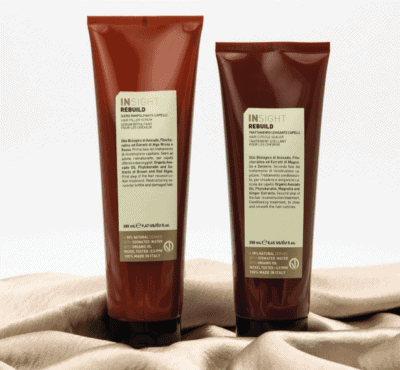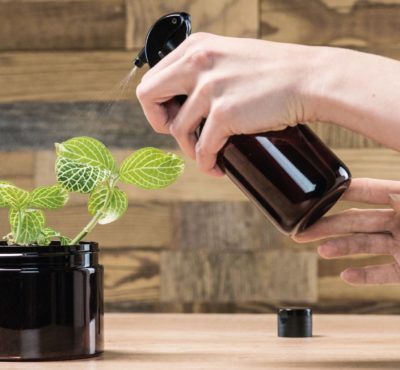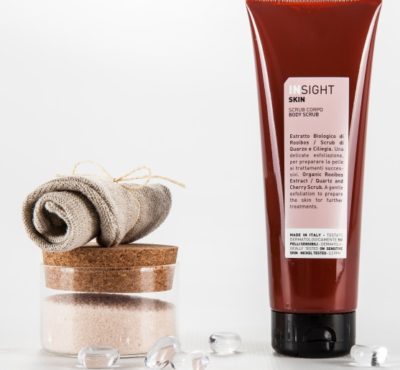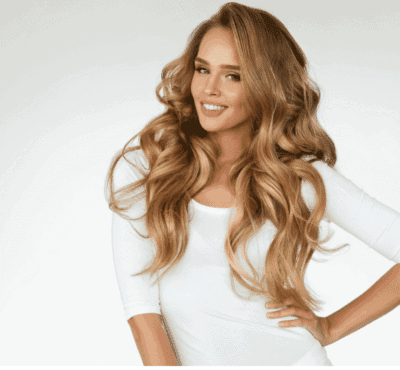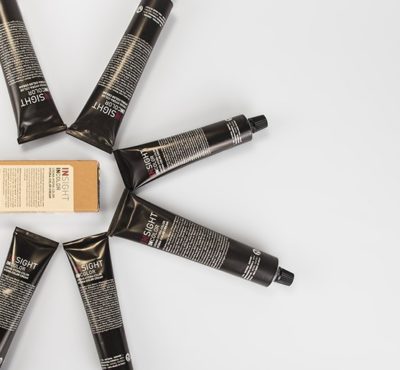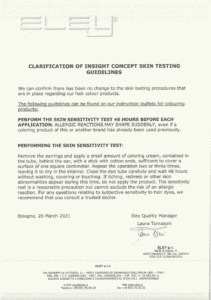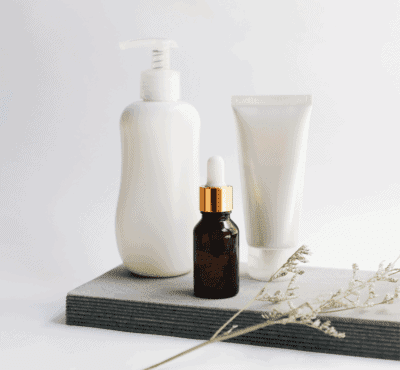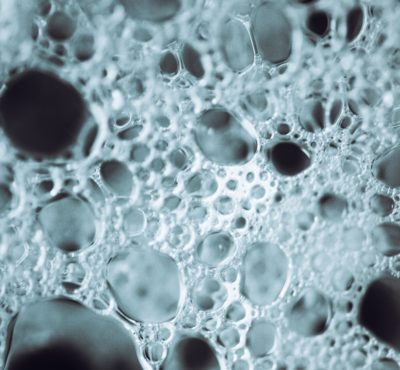INSIGHT REBUILD: THE MOST INTENSIVE TREATMENT TO REBUILD YOUR HAIR
(v) re· build build (something) again after it has been damaged or destroyed.
Hair is an essential part of our image: it plays an important role, both psychological and social, in the expression of our identity. Changing the shape and colour of your hair becomes a way to communicate your personality to society. Often, however, in order to achieve the desired result, it is necessary to resort to chemical and thermo-mechanical treatments to modify the hair’s structure, sometimes running the risk of damaging the hair fibres. In addition, some environmental agents such as exposure to sunlight, dust, and pollution can also affect hair health, causing dryness, brittleness, and loss of shine. Further Consequences: Loss of strength of the hair fibre and deterioration of the hair’s appearance and integrity; hair becomes frizzy, damaged, lifeless, and dull. Hence the importance of formulating products that are effective in providing visible improvement in the appearance of the hair as well as structural restoration. REBUILD is Insight’s professional hair reconstruction system; it offers two innovative, effective and functional formulations for professional salon use:-
Hair Filler Serum
-
Hair Cuticle Sealer
- In vivo tests, mainly based on sensory analysis, i.e. a set of methods that access the characteristics of a product using the primary human senses. The model test belongs to this category.
- In vitro tests, through laboratory analyses on hair samples. This type of test involves using highly specific instrumental methods, capable of providing accurate measurements of a certain skin or hair feature.
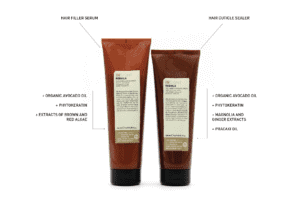 + ORGANIC AVOCADO OIL
Avocado oil is the ideal ingredient to take care of fragile, brittle and lifeless hair. A natural source of lecithin and potassium, it is rich in elements that make it particularly valuable in the treatment of damaged hair. It helps to make the hair shinier and stronger.
+ PHYTOKERATIN
A blend of plant-derived hydrolysed proteins with an amino acid profile very similar to hair keratin, able to increase the resistance to traction and improve some characteristics of wet and dry hair, such as softness, comb-ability, or the maintenance of styling.
+ EXTRACTS OF BROWN AND RED ALGAE
These extracts, in combination with plant-derived proteins, contribute to the stable restoration of KAPs within the hair cortex. In this way, they help to increase hair mass and strengthen the hair structure. They are also rich in mineral salts, polyphenols, and polysaccharides, and therefore play a remineralising role, essential in restoring damaged hair to its ideal state of health.
+ MAGNOLIA AND GINGER EXTRACTS
A combination of plant-derived extracts to protect the hair from protein oxidation, maintaining the integrity of the hair structure, ensuring the strength of the hair fibre, and improving shine.
+ PRACAXI OIL
Rich in lipids similar to those of the superficial layer of the hair, it helps to restructure and protect the outermost part of the hair.
+ ORGANIC AVOCADO OIL
Avocado oil is the ideal ingredient to take care of fragile, brittle and lifeless hair. A natural source of lecithin and potassium, it is rich in elements that make it particularly valuable in the treatment of damaged hair. It helps to make the hair shinier and stronger.
+ PHYTOKERATIN
A blend of plant-derived hydrolysed proteins with an amino acid profile very similar to hair keratin, able to increase the resistance to traction and improve some characteristics of wet and dry hair, such as softness, comb-ability, or the maintenance of styling.
+ EXTRACTS OF BROWN AND RED ALGAE
These extracts, in combination with plant-derived proteins, contribute to the stable restoration of KAPs within the hair cortex. In this way, they help to increase hair mass and strengthen the hair structure. They are also rich in mineral salts, polyphenols, and polysaccharides, and therefore play a remineralising role, essential in restoring damaged hair to its ideal state of health.
+ MAGNOLIA AND GINGER EXTRACTS
A combination of plant-derived extracts to protect the hair from protein oxidation, maintaining the integrity of the hair structure, ensuring the strength of the hair fibre, and improving shine.
+ PRACAXI OIL
Rich in lipids similar to those of the superficial layer of the hair, it helps to restructure and protect the outermost part of the hair.
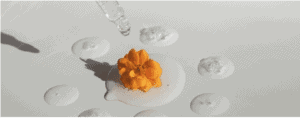 PRODUCTS
STEP 1 – HAIR FILLER SERUM
The Hair Filler Serum is the first phase of the REBUILD treatment.
It has a formula with a more basic pH than that of the hair, to facilitate the opening of the scales, as well as being rich in ingredients that can deeply penetrate and repair the hair cortex from the inside.
How to use
PRODUCTS
STEP 1 – HAIR FILLER SERUM
The Hair Filler Serum is the first phase of the REBUILD treatment.
It has a formula with a more basic pH than that of the hair, to facilitate the opening of the scales, as well as being rich in ingredients that can deeply penetrate and repair the hair cortex from the inside.
How to use
- Cleanse the hair with Intech Pre-treatment shampoo
- Towel dry the hair removing excess water
- Distribute the Hair Filler Serum on damp hair
- Leave on for 8 to 12 minutes, depending on the type of hair
- Rinse with water only
- Proceed with the Hair Cuticle Sealer
- After rinsing the Hair Filler Serum off, apply the Hair Cuticle Sealer to hair that has been carefully towel-dried
- Leave on for 8 to 12 minutes, depending on the type of hair
- Rinse with water only
- Style and dry hair
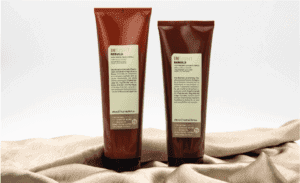
Firstly, what is sustainable packaging?
A widely shared definition of sustainable packaging is, “Sustainable packaging is the development and use of packaging which results in improved sustainability. This involves increased use of life cycle inventory (LCI) and life cycle assessment to help guide the use of packaging which reduces the environmental impact and ecological footprint.”Why do we need sustainable packaging?
Sustainable packaging is highly important in the modern world. It reduces the ecological footprint of all stages in a product’s life-cycle. Sustainable packaging helps both the producer (INSIGHT) and the consumer (YOU) to reduce environmental impact. The impact humankind has caused for the planet is by far one the greatest challenges faced today, and will continues to future generations. Making change now increases positive change for the planet and for those who will inhabit it for years to come. So, with a view to greater social and environmental responsibility, it is necessary to continually improve packaging design AND innovate each phase of the product life cycle, hence our philosophy to REUSE REDUCE RECYCLE.Tell me more…
The concept of Life Cycle Design is becoming increasingly popular in the packaging world. It’s a design methodology based on the concept of Life Cycle Assessment, which is the analysis of the life cycle of products. In short, thinking about packaging throughout its life cycle, from production to logistics, from distribution to consumption, up to its recycling: the objective, as mentioned above, is to minimise waste, reducing the impact on environment and society. A main feature of Life Cycle Design is the process of packaging reuse. Designing a bottle, a jar or a box that can exist beyond the life expectancy of the product it contains; this is the best way to act eco-responsibly, giving added value to the product itself. For this reason, INSIGHT is proud of packaging designed not only to be used and recycled but also to be reused. All our bottles and jars, once their primary function of preserving, protecting or transporting products has been exhausted, can be transformed into something else, through innovative and above all, sustainable solutions.Benefits of using Insight skin Body Scrub are:
- Improved skin appearance (bright, smooth and even)
- Healthier pores that remain free of debris
- Increased blood circulation (exfoliating stimulates blood flow under the skin)
- Restored natural hydration to the epidermis and therefore creates the perfect base for absorbing nutrient rich creams or other subsequent treatments
INSIGHT SKIN BODY SCRUB
Our wonderful body scrub contains Organic Rooibos Extract, Quartz Scrub and Cherry Scrub. Organic Rooibos Extract is packed with antioxidants and is rich in alpha hydroxy and zinc; health boosting ingredients for skin. Alpha hydroxy not only reduces the signs of ageing but also revitalises the skin. Zinc heals wounds, protects against UV rays and has anti-inflammatory properties, which could alleviate acne, pimples and sunburn. Quartz Scrub is a purifier that opens the heart at all levels. This wonder ingredient delivers inner healing, clear complexity and rebounds negative energy. Its greatest skin healing qualities are its ability to reduce and release impurities and stresses int he skin. Cherry Scrub is super charged with vitamins and antioxidants, it can even be considered the holy grail of skin-brightening. There is also an abundance of vitamins A, B, C and , which are famous for sustaining the healthiest skin and for helping with pigmentation and skin rejuvenation.How to use: massage on damp skin, then rinse.
- ICEA ECO BIO CERTIFIED
- DERMATOLOGICALLY TESTED ON SENSITIVE SKIN
- NICKEL TESTED < 0,5 ppm
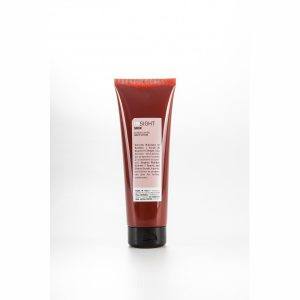
1. Use a light volumizing shampoo and conditioner
Volume starts in the shower! No we don’t mean your loud music, but that may help too, so pump the tunes! We mean your shampoo and conditioner! Make sure you are using a super lightweight product that is specially designed to add volume and moisturise. Try our Volumizing, Volume Up range!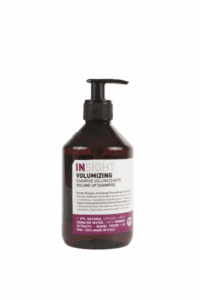
2. Don’t apply conditioner on your roots
We would be lost without conditioner! But, did you know it should only be used on your mid-lengths to ends? We’re all guilty of slathering a handful all over our heads, but this is a prime hair flattening mistake! When you cleanse your hair with shampoo, your cuticles open up looking for nourishment and moisture, when you dump a truckload of conditioner on scalp (a natural oil source) it will suck up the conditioner and hold it, making roots greasy, heavy and of course, flat! This little trick will not only add volume to flat hair but will also stop you having to use 3 bottles of conditioner to every 1 of shampoo!3. Blow-dry
Chances are, if you have flat hair, it probably air drys super fast and straight! But don’t be tempted to sky the blow-dry if you want that volume! Use a volumizing treatment spray and get that blow-dry technique down (tips below). For incredible volume, hydration and hair health, try INSIGHT Volumizing Volume Up Hydrating Spray:
4. It’s all in the technique
Start off your drying journey with your head flipped upside -down, no need for a hair brush at this point. This lifts hair at the root and will rough up your cuticle for max volume. Once your hair is a little over half dry, flip back up to the real world and start blow-drying the mid-ends to smooth and soften. Avoid flattening your roots and losing the texture you just worked so hard to add!5. Roll up, roll up
Post blow-drying, section off flat pieces of hair (parallel to your shoulders) at the crown, and roll them into Velcro rollers. Heat the rolled hair with a hairdryer and allow to cool, or blast with the hairdryer’s cool setting; you’ll get an instant hair crown!6. Get Colourful
Add colour for texture! Fine hair will transform after a full head of highlights! Your cuticles will get a little rough, meaning your hair will lift and hold styling longer. Head to your local INSIGHT salon for best colour results with the least possible damage!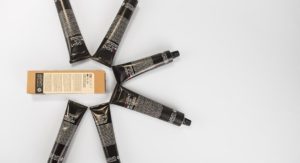
7. Dry shampoo
Dry shampoo is your best friend when looking to add volume to flat hair! Not only can you achieve volume, but with a powder you can make hair appear thicker and fuller, prolong your styling, and cleanse your scalp! Check out INSIGHT’s Daily Use Bodifying Dry Shampoo for all these fabulous benefits!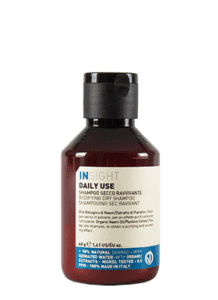
8. Take a break
You shouldn’t be shampooing daily anyway, but with flat, thin hair you should be shampooing even less! Cut back on the hair washing and opt for a high quality dry shampoo to fill in the days (above). You’ll see the volume difference within the week!9. Use soft-hold hairspray
When using hairspray, always use soft-hold, heavy products will weigh your hair down and make it appear even flatter! Our INSIGHT Styling Medium Hold Ecospray will blow you away! You’ll get soft hold, beautiful volume and added healthy shine! Oh, and did we mention, it smells INCREDIBLE!!!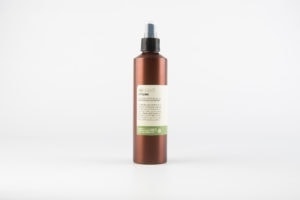
10. Learn to love mousse
We all fear mousse thanks to our parents! Mousse has come a long way since its frozen, crunchy, drying, old school formula. Today, mousse is soft, hydrating and fabulous! Using a small amount on wet hair and combing through to ends before blow drying will give you serious lift! Try INSIGHT’s Volumizing Shaping Ecomousse for body, elasticity and oomph!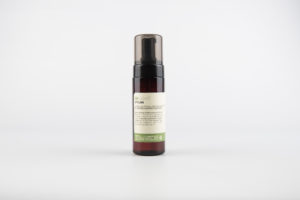
SKIN TEST UPDATE 2021 FOR INSIGHT INCOLOR
Click the link Below to read our clarification of INSIGHT skin testing guides
>>CLARIFICATION OF INSIGHT CONCEPT SKIN TESTING GUIDELINES<<
INSIGHT Incolor patch testing in action!
Whether you’re a long term Incolor technician or you’re new to INSIGHT, you’ll know how important it is to carry out skin testing. Below is a video guide of how to test INSIGHT products.
Let’s compare SLS and SLES!
If you’re on our website, chances are you’re a conscious haircare lover, and you may already be familiar with SLS’s and SLES’s. But if not, SLS stands for Sodium Laurel Sulphate, and SLES stands for Sodium Laureth Sulphate. SLS and SLES are both surfactants that get added to health and beauty products to create the lathering affect we became so used to. We’re going to dive deep into the difference between SLS and SLES and help you understand why you’ll never find such nasties in our products!What is SLS?
Sodium Lauryl Sulfate (SLS) is and ingredient found in many everyday products. It produces the foamy lather that we deem ‘normal;’ we expect soap, face wash, toothpaste, shower gels etc to all have this quality, however none of these products actually need SLS. Despite SLS being deemed safe, it has been identified as a key skin irritant. Manufacturers must limit the amount of SLS in their products due to its harmful effects. We wonder, if the concentration of SLS must be controlled and regulated due to harming of skin, why use it at all? None of our products contain SLS, and they never will! Find out more about our ingredients here.Why you should stop using SLS
If you are a sufferer of sensitive skin or skin conditions such as eczema or dermatitis, you’ll want to avoid all products containing SLS. SLS disrupts the the natural oils that maintain the skins integrity; it damages the outer layer of the skin causing dryness, cracking and tenderness, and also reduces the skins ability to fight allergens. Similarly, for those who suffer with acne (mild or severe), products containing SLS may be contributing to breakouts. Not only does SLS affect skin, it is known to be responsible for hair loss and decreased health/strength of our hair! SLS is only designed to be in contact with our bodies for a very short period of time before irritation occurs, yet it is difficult to fully remove! SLS often remains in our hair follicles post washing, which leads to weakened, damaged hair. In our opinion, SLS is best left for use in household cleaning products!What are SLES?
Now we understand what SLS’s are, let’s get to SLES. Sodium Laureth Sulfate (SLES) is the chemically adapted child of SLS. Also, an inexpensive, synthetic foaming agent, SLES is produced when SLS undergoes a process called ethoxylation. Although this process helps to make SLES more water-soluble and less skin-irritating, it can be accidentally contaminated with a chemical called 1,4 dioxane causing impurity and irritation. Despite being deemed as less damaging, we believe any synthetic agents such as these do not belong non our bodies!Our favourite SLS and SLES FREE products this month!!
INSIGHT Blonde Cold Reflections Mask!
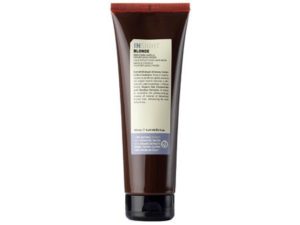 BANISH BRASS AND BOOST HYDRATION ALL IN ONE!
OUR INCREDIBLE FORMULA IS BURSTING WITH NATURAL INGREDIENTS, SCIENTIFICALLY FORMULATED TO NEUTRALISE YELLOW/ORANGE HUES AND NOURISH DEEP FOR EXTREME BLONDE HEALTH!
BANISH BRASS AND BOOST HYDRATION ALL IN ONE!
OUR INCREDIBLE FORMULA IS BURSTING WITH NATURAL INGREDIENTS, SCIENTIFICALLY FORMULATED TO NEUTRALISE YELLOW/ORANGE HUES AND NOURISH DEEP FOR EXTREME BLONDE HEALTH!
INSIGHT STYLING LIQUID CRYSTALS
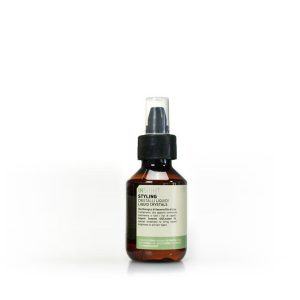 THE ULTIMATE HAIR TREATMENT, LEAVES HAIR SHINY, SOFT AND MANAGEABLE!!
THE ULTIMATE HAIR TREATMENT, LEAVES HAIR SHINY, SOFT AND MANAGEABLE!!
INSIGHT ANTI-FRIZZ HYDRATING SHAMPOO
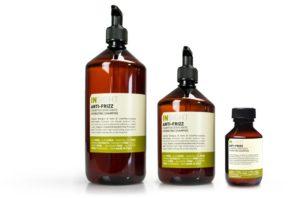 SCIENTIFICALLY FORMULATED TO CORRECT FRIZZ, NOT MASK ITS EFFECTS. INTENSELY MOISTURISES, GENTLY SOFTENS, EFFORTLESSLY DETANGLES. SILKY, GLOSSY FINISH FROM THE VERY FIRST USE!
SCIENTIFICALLY FORMULATED TO CORRECT FRIZZ, NOT MASK ITS EFFECTS. INTENSELY MOISTURISES, GENTLY SOFTENS, EFFORTLESSLY DETANGLES. SILKY, GLOSSY FINISH FROM THE VERY FIRST USE!
After hearing about SLS and SLES, what’s your opinion? Will you be banishing SLS and SLES from your hair and beauty routine?
Comment below, or tell us on Facebook or Instagram!
You’re probably using silicone based hair care products right now, without even knowing! Have you noticed the growing number of people shunning silicone from their day to day hair care and beauty routines? This is why…
What is silicone?
Silicone is a manmade substance that has been used for years in household products, cosmetics, and hair care products; from shampoos and conditioners to serums and heat protectors. Far from natural; silicone is a rubber/plastic like substance. It is primarily used as a sealant against water and even air!What does silicone do to your hair?
Silicone seals each hair strand and creates the illusion of shine; a fake shine that is far from healthy, it’s simply a refection from the plastic like substance. The shine you should desire comes from your hair cuticle layers being sealed naturally, and reflecting light. This is only possible when your hair is deeply nourished, hydrated and healthy. In addition to false shine, silicone weighs the hair down, making it limp, lifeless and eventually extremely dull. As silicone makes a seal around each hair, moisture and air cannot penetrate it. Would you starve a plant of water and air? What would happen? Your hair will become unbelievably brittle and dry, leading to breakage and frizz. Also, the silicone layer becomes a magnet for dirt and build up. So, essentially, we have shiny celeb locks for a day or so, until we attract all kinds of nasties from products and pollutants. Overall, silicone blocks nutrients and essential moisture penetrating your hair and leads to an unhealthy, weak condition and look.How do I find silicone on product labels?
There are many types of silicone so start memorising! In general, search for all words ending in ‘cone.’ Here’s a list of some main ones you’ll find in your hair products:-
Cyclomethicone
-
Dimethicone
-
Methicone
-
Dimethiconol
-
Amodimethicone
-
Cyclopentasiloxane
-
Pheryl Trimethicone
-
Stearyl Dimethicone
Why are silicones in our hair care products?
As with many older ‘revelations,’ we would value results rather than effects. Remember old school hair spray! It made our hair stay in desired styles that were ‘cool’ yet it was ruining the planet, and our hair. We adapted ingredients and technology as we became more educated; counteract hairsprays damaging effects. We have now collected the evidence and educated ourselves enough to rethink silicone in our hair care! Silicone was placed in hair products for its silky looking finish; just what we want right? But at what cost when other natural ingredients do it just as well, if not better!Breakdown: Why you shouldn’t use silicone based hair care products
-
Your hair cannot breathe
-
Your hair cannot access essential nutrients
-
Moisture cannot penetrate your hair
-
Silicone attracts build up
-
Your hair will become dull, lifeless and brittle
-
Your hair will become more prone to breakage
-
It is difficult to remove
-
Silicone masks the true condition of your hair
Are silicone based hair care products dangerous?
Don’t believe everything you read on labels!
Many brands market themselves as “100% silicone-free” yet are far form it! What they are really saying is that they only contain the silicones that they deem ‘friendly’ and ‘less damaging.’ Always read product ingredients and be aware of what is inside your hair care!What to expect when you ditch silicone filled hair care products
Firstly, this is a process! Stripping silicone will make your hair feel extremely different! It can feel rough, coarse and unhealthy, but that is OK!!! You’re on the path to the healthiest hair of your life! You will need to strip the silicone with a natural shampoo, and then you will need MOISTURE MOISTURE MOISTURE! Use a shampoo and conditioning range targeting dry or damaged hair, and make sure you use a rich mask a couple of times in the first week of the switch!Have you ditched silicone based hair care products? Let us know your experience below or message us on social media!
Read the INSIGHT ethos, we will never use silicone in our hair care!Did you enjoy our blog on silicone based hair care? Let us know below!
Stay up to date on Facebook & Instagram.What is sulfate free shampoo?
Sulphate free shampoo is a growing trend in the haircare industry. But why? Has it been discovered that sulphates are dangerous? Damaging to hair? Maybe we just don’t need them?
Do you read your hair and beauty product labels? If you do you’ll probably have noticed that many products including shampoo, cleanser, body wash and even toothpaste can include sulphate! So, what is sulphate? Should I avoid it? Let’s explore.
What are sulphates?
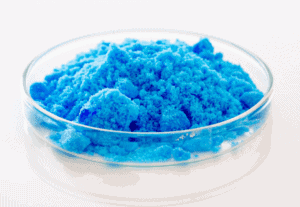 A Sulfate is a salt that forms when sulphuric acid reacts with another chemical. It’s a broader term for other synthetic sulphate-based chemicals you may be concerned about, such as Sodium Lauryl Sulphate (SLS) and Sodium Laureth Sulphate (SLES); these two types are most commonly used in the haircare industry. If you’d like to know the difference between SLS and SLES click here.
They’re derived from sulphur which does in fact occur naturally, yet is usually synthesised from petrolatum) and Lauryl alcohol (often from coconut oil).
Sulphates have long been added to many products (as mentioned above), due to their foaming, oil and grease emulsifying, polishing abilities.
A Sulfate is a salt that forms when sulphuric acid reacts with another chemical. It’s a broader term for other synthetic sulphate-based chemicals you may be concerned about, such as Sodium Lauryl Sulphate (SLS) and Sodium Laureth Sulphate (SLES); these two types are most commonly used in the haircare industry. If you’d like to know the difference between SLS and SLES click here.
They’re derived from sulphur which does in fact occur naturally, yet is usually synthesised from petrolatum) and Lauryl alcohol (often from coconut oil).
Sulphates have long been added to many products (as mentioned above), due to their foaming, oil and grease emulsifying, polishing abilities.
Are sulphates safe to use?
The consensus among scientists is that sulphates are generally safe for use in our products. However, sulphates have been known for their skin irritating effects, frizz causing, colour fading, and skin/hair dehydrating!So, what’s so bad about sulphates?
Besides the negative skin and hair results, when looking at Sulphates from a conscious perspective (as we do at INSIGHT), we question the sustainability of those using sulphates! We at INSIGHT choose products that do not have a negative affect on the planet! Companies using sulphates are using Petrolatum; a diminishing material- the main reason Eco-friendly, sustainable companies are banishing the ingredient from their products!How to spot sulphates in ingredient lists
When searching ingredient lists look out for:- SLS (Sodium Laureth Sulphate)
- Sodium Lauryl Ether Sulfate
- SLES (Sodium Laureth Sulfate)
- SDS (Sodium Dodecyl Sulfate)
- Sulfuric Acid Monododecyl Ester Sodium Salt
- Sodium salt
- Hydrogen Sulphate Dodecyl alcohol
- Sodium Dodecane Sulfate
- Sodium Monododecyl Sulphate
Sulphate free shampoo and your hair type
You may be wondering what benefits sulphate free shampoo come with! Let’s answer this in accordance to your hair type!Is your hair curly or frizzy?
When introducing sulphate free shampoo to curly or frizzy hair, you will see immediate difference! Sulphate lifts the hair cuticle, making it particularly prone to frizz. The drying effects of sulphate will also make curls less manageable and the internal formation of the curl weaker! Opt for a sulphate free shampoo!We recommend:
-

INSIGHT Anti Frizz Shampoo
Is your hair coarse or dry?
If you want smooth and soft hair rather than coarse, dry hair, ditch the sulphate! Along with curls or frizz, your hair needs natural oils to stay put! Shampoos with sulphates wash all of these brilliant shine giving, healthy oils down your drain! A sulphate free shampoo will dramatically improve the hydration of your hair, leaving it feeling soft and smooth!We recommend:
-
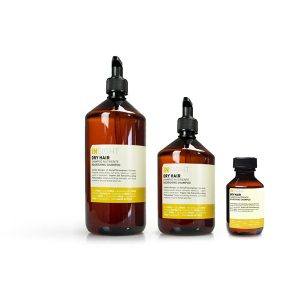
INSIGHT Dry Hair Shampoo
Is your hair coloured or damaged?
Whilst sulphate free shampoo is great for thicker hair, is it also as good for thin and damaged hair? Absolutely! Sulphate free shampoo will be extremely gentle on your coloured or damaged hair. As in the two previous cases, you want to keep those natural oils to nourish and replenish lost health. In this case we would also suggest you use a mask for damaged or coloured hair!We recommend:
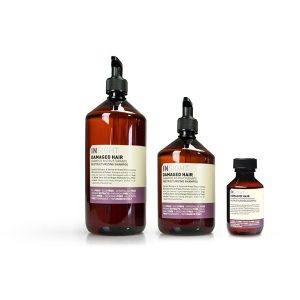
8 wellbeing tips during lockdown
1. Look after your mental health
Some of the main reasons for deteriorating mental health include change, uncertainty and loneliness. No wonder why we’re all feeling a bit down!
There are several benefits associated with positive mental wellbeing, including:
- Reduced stress and anxiety
- Improved moods and clearer thinking
- A greater sense of calm and increased self-esteem
- Improved relationships
2. Know your own mental health needs
Mental health can be a difficult subject, many people may not understand their true feelings, nor be able to express them. But, this exploration and understanding is important when dealing and managing mental health and stress. We’re here to help you understand with some questions:- Are you more irritable lately? Perhaps in situations you wouldn’t have been before.
- Are you less tolerant of those around you?
- Are you still engaging in activities that you enjoy?
- How is your concentration?
- Are you feeling overwhelmed?
- Are you worrying about your future? Which part?
- Are you taking time for yourself?
- Has your sleep changed? more/less
- Are you following a routine?
- Are your eating habits the same as usual?
Let’s take back control! When we feel in control of our lives we feel better about our mental state! So, dig into your mind, how are you feeling right now? What is causing your stress/anxiety? Writing these thoughts down can help you feel like you are controlling your emotions, seeing them objectively and then therefore being able to respond with clarity and control. You may find it helpful to share these thoughts with a trusted friend or family member for another view. Often, our worries are made bigger in our own minds.
There are many other useful resources for dealing with mental health during COVID-19 on the GOV website , on MIND, and the NHS.3. Practice mindfulness
No matter what is happening around us, the stress we’re experiencing, where we are in the world, mindfulness can help to ground us and make us fully present in the moment.Practising mindfulness helps to reduce stress and anxiety, improve memory, and helps with concentration. When incorporating the method long term there is significant benefit to how improvement in emotional health, relationships and communication.
To start your mindful journey click HERE.4. Stay connected
One of the most important wellbeing tips during lockdown is to stay connected! It is important to be in touch with family and friends in such difficult times! With the vast technology we have accessible, we have no excuse, and it’s never been easier!Not seeing our loved ones face to face can impact our mental health! But, keeping in touch and communicating with them regularly can help! Of course it is not the same as giving our best friend a huge hug, but a little communication can be a huge mental boost.
We all have our own way of cheering up our loved ones online! Try our some new platforms! Maybe even get dancing on TikTok and connect with people around the world!
5. Eat a healthy diet
We all learned from Lockdown 1.0! Comfort eating and midweek wine did nothing for our mental or physical wellbeing! If you’ve not learned just yet, its a great time to start! It’s the new year after all! The benefits of a healthy diet are endless! If you need some help find info HERE.6. Keep moving!
Physical health is just as important as mental health at a time like this. In fact, working on your physical health can boost your mental health! Gyms may be closed but that is no excuse! There are plenty of ways to keep you body moving!- Go for a bike ride
- Join a virtual fitness class (TV, Instagram, YouTube etc)
- Go for a walk (close by)
- Order some home weights
- Get cleaning (heavy cleaning is a great workout)
- Get some resistance bands (strengthens muscles & mobility)
- Follow an online Yoga class
- Start ‘couch to 5K’ if you want to start running
7. Challenge yourself
This point is very broad! It can be about fitness, self care/development, your job or anything you like! By having a goal and setting a challenge you set yourself a purpose! This is great for mental wellbeing! Choose a realistic goal and begin your journey!8. Get your beauty sleep
A final, but one of our VERY important wellbeing tips during lockdown, is to SLEEP! If you aren’t sleeping well, your whole body is suffering! The lockdown disruption is causing us to slip into bad sleep habits! We need to practice good sleep hygiene:- Stick to a sleep schedule – wake up at the same time EVERYDAY
- Try not to nap in the day
- Include wind down time in your day (30 minutes before bed)
- Practice healthy living in the day (be active, get daily light exposure, reduce alcohol consumption, don’t smoke, don’t eat too late)
- Avoid caffeine or alcohol late at night
- Optimise bedtime (buy a quality comfortable mattress, buy cotton breathable sheets, set a cool temperature, use calming scents, ensure silence, block out light)

